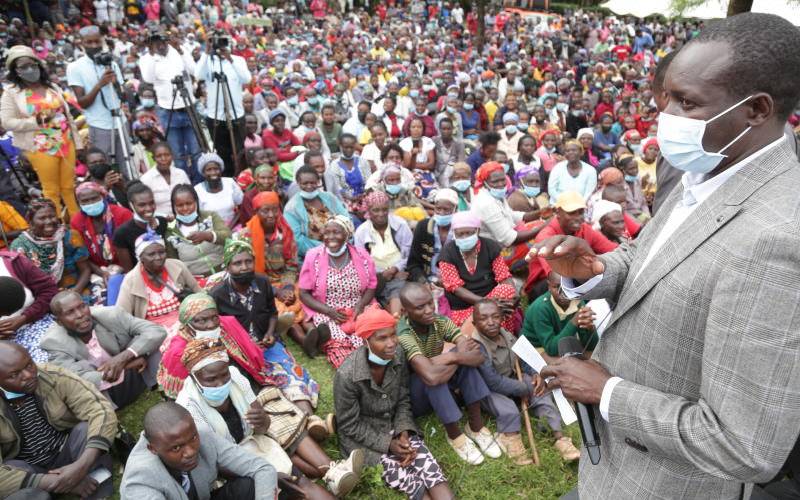×
The Standard e-Paper
Join Thousands Daily

The race for the Kisii governor’s seat is turning out to be a contest of who has a bigger financial war chest with candidates investing into the campaigns ahead of the August 9 General Election.
As a result, cash handouts have literally pushed most farmers out of their farms in the last one month as they now prefer attending rallies deep in their villages.